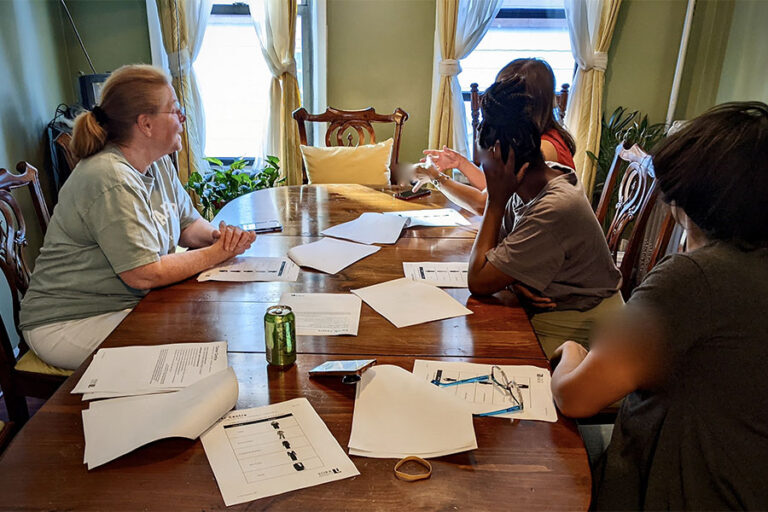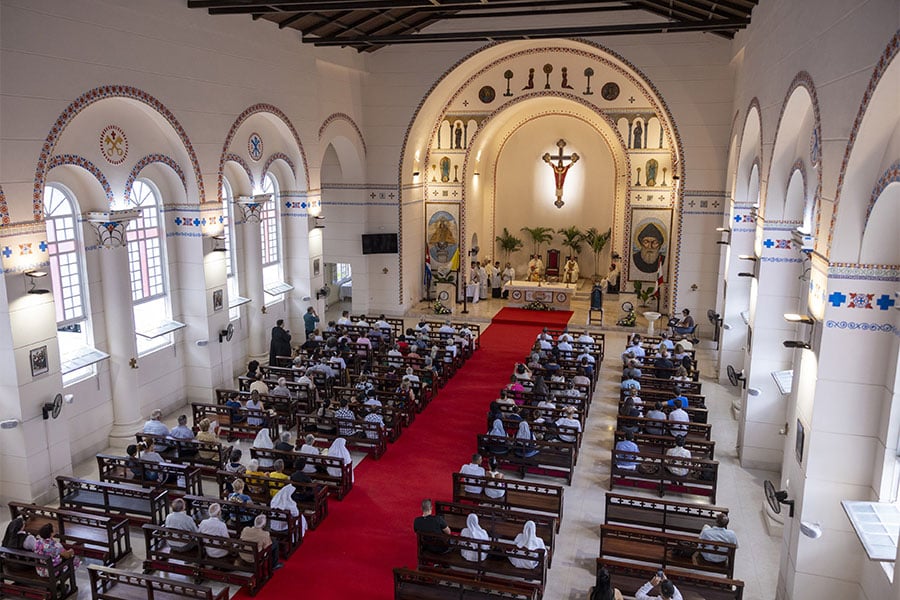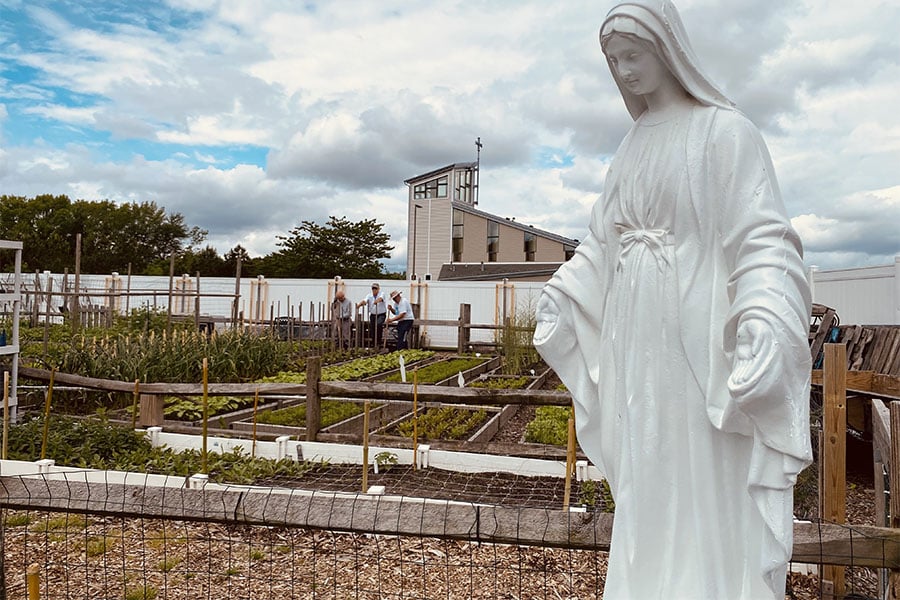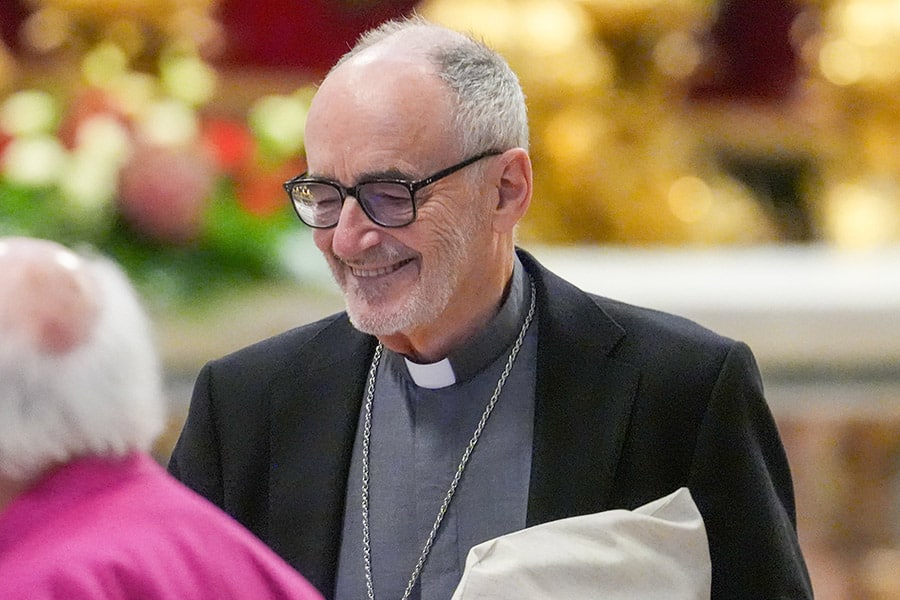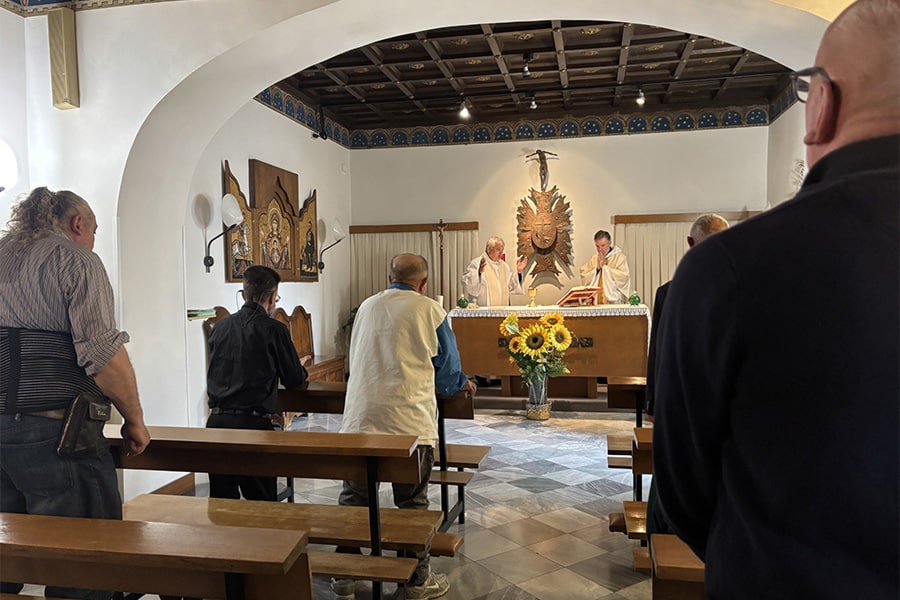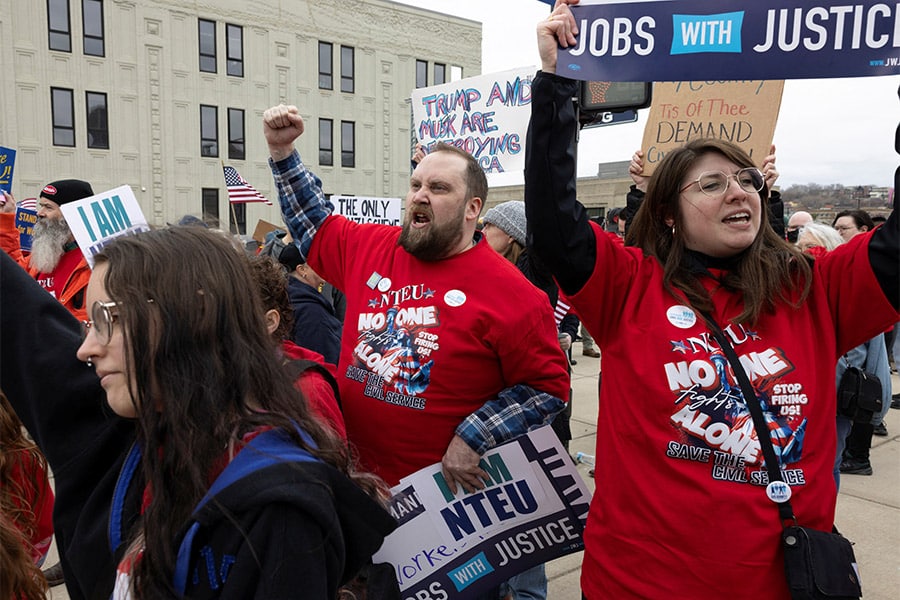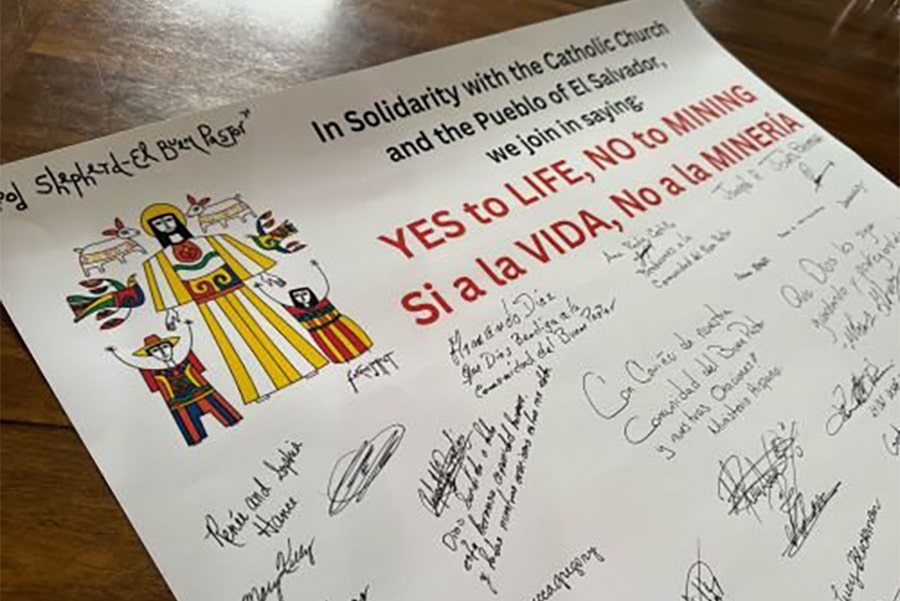When “L” needed to make a sudden move to the United States, she secured stateside sponsorship for her visa application, and she traveled light and alone, arriving with just the dress and shoes she was wearing.
She quickly found herself confined to an apartment by people from whom she’d expected help. There was no pay forthcoming for the endless household chores she was forced to perform. She was completely dependent on her captors for essentials like food, clothing and housing.
She’d left behind a supportive extended family in South Asia. Pursuing higher education had been a central piece of her life. This new cycle seemed inescapable for L, who didn’t feel confident enough to converse in English in public.
Four months in, she was able to gain furtive social media access. She reached a lawyer friend back home, and he instructed her on how to alert local authorities about her situation of exploitation.
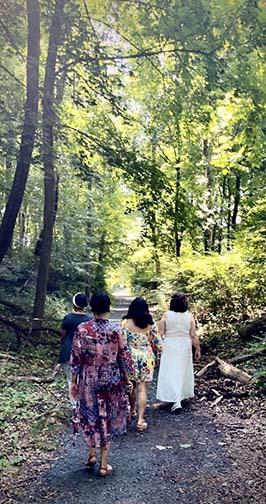
By the time L ended up at LifeWay Network, a New York City-based nonprofit focused on ending human trafficking, she was sharply aware that she had nothing and knew no one.
Her captors “cut off everything,” L, whose identity has been withheld to protect her privacy, told Global Sisters Report. “I had not even one penny.”
As volunteers for LifeWay’s community housing program, Sisters Claudia Stecker and Kate O’Neill help human trafficking survivors like “L” put their lives back together.
Both O’Neill and Stecker arrived at LifeWay in early 2023 from long-term ministry in the Philippines; they often served children whose parents had left the country in search of better financial circumstances.
Stecker is Canadian and a teacher by profession; O’Neill is Australian and a social worker. Both sisters are members of Our Lady of the Missions, based in Rome, Italy; members of the congregation serve in about 20 countries, but O’Neill said her and Stecker’s arrival in New York marks its first insertion in the U.S.
They work alongside staff in one of LifeWay’s two safe houses. A house manager works weekdays, and O’Neill and Stecker are there afternoons and nights to oversee things and hear survivors out if they want to talk.
“They can stay for up to a year,” Stecker said. “If things aren’t going well, then there may be an extension.”
Labor exploitation, Stecker explained, can often give way to sexual exploitation. Trauma abounds as survivors attempt mental, physical and financial recovery.
“Most of them suffer — especially those who’ve been sexually trafficked — a lot of mental health and post-traumatic stress disorder,” O’Neill said. “There’s a vulnerability. The traffickers, I think, can sense this. … It’s a way of targeting them.”
Many of the survivors are American, but there’s a significant international population, and as in L’s situation, captors often withhold important personal belongings.
“Sometimes their passports are taken away from them, and then they have no legal recourse, and they get stuck,” Stecker said. “If there’s any coercion at all, then that’s trafficking.”
Confinement and withholding of payment owed often earmark these situations.
“Often in their work situations, they end up losing their freedom of movement. They’re not paid as was promised. I think for a number of them, the whole visa scenario is held over their heads,” O’Neill said. “So, it’s a control aspect.”
LifeWay Network began in 2007 when Sister Joan Dawber, a member of Sisters of Charity Halifax, saw a need to help trafficking survivors get back on their feet, not only with safe housing but with logistical assistance. The goal was and is for survivors to stay out of trafficking permanently.
“Sister Joan really made it clear that this wasn’t a shelter, and still to this day, we run it the same way,” explained Josephine Crisostomo, LifeWay director of education, training and advocacy. “She wanted this to be a place where survivors can feel free but can also continue to grow around their goals.”
Today, women religious from various congregations support LifeWay through involvement with its board of directors, its corporate board and its development team, Cristostomo said. The organization now runs two safe houses in the city where all survivors served are female and over age 18.
Paid staff came on during the COVID-19 pandemic when religious sisters couldn’t live in the houses, Crisostomo said, but the receding of the emergency has allowed O’Neill and Stecker to serve in the host community house.
Crisostomo said a lot of the foreign-born survivors that the organization serves simply don’t understand the way systems in America like taxation and education work. The host community, she explained, provides workshops and “community building” for survivors. Workshop topics include opening bank accounts, saving and managing money, and applying for GED classes and Medicaid.
Trauma, an inevitable part of survivors’ lives, is a discussion point. And weekly community dinners put survivors and staff around a table where conversation flows.
The house where Stecker and O’Neill serve has seven beds, but the actual number associated with full capacity varies according to the needs the staff and volunteers can support, Stecker explained. Having individuals from different backgrounds under the same roof inevitably presents hurdles.
“One of the challenges in an international setting like this is language. Even at the moment, we have two different languages (spoken) that are not English and that require translation in order to work with the survivors,” Stecker said, adding that a handheld translator and the Google Translate app are helpful, but deeper conversations can be difficult.
Assisting survivors, both sisters acknowledged, can be stressful. They take steps to bolster their own self-care regularly.
“We have one night off a week. We usually try and not stay in the house. We go and stay with friends, for example, just to get out of the house because we feel the importance of that,” O’Neill said. “We connect with others through Zoom, etc. … We connect with our congregation, with sisters.”
Back in the house, logistics of sharing space must be worked out continuously.
“With different cultures, people like different foods. Different foods have different smells, so it can trigger people,” O’Neill said. “(There are) day-to-day living realities that require thinking a lot of the time.”
Nevertheless, connections happen and last. Some women graduate the program and keep in touch, forming a sort of support network, the sisters said.
At this point, L has been out of the LifeWay safe house for over a year. She had the option to extend her stay, but she declined.
“I wanted to give an opportunity to the next survivor,” she explained.
Back at the beginning of her time there, LifeWay staff met her basic living needs and gave her a little space to think. Then, they began helping her work on goals she established for herself: improving her English, looking for employment, writing a résumé, learning how to speak and dress the part for interviews. L snagged the first job she interviewed for.
And she’s begun giving workshops to other survivors at LifeWay in art — the focus of her master’s-level education.
“Sometimes you just need a little bit of help, and then you can make a change,” she said, reflecting on her escape from exploitation.
She advised other survivors to jump on any opportunity they have to improve their situations.
“They can’t waste their time,” she said. “Time is the most important thing.”
L’s life here is starkly different from the one she left in her native country. The barest of essentials require hard work and planning every day, and that effort is magnified by the fact that she’s living in a place that’s still relatively new to her. But she’s leaning into the challenges.
Since leaving the safe house, L has married — she sponsored her spouse’s arrival in the U.S. — and she’s expecting a baby. She’s moved forward with her own family, but she often references the organization’s contribution to her survival and success.
“LifeWay is my first family here,” she said.
Read More Social Justice
Copyright © 2024 OSV News

